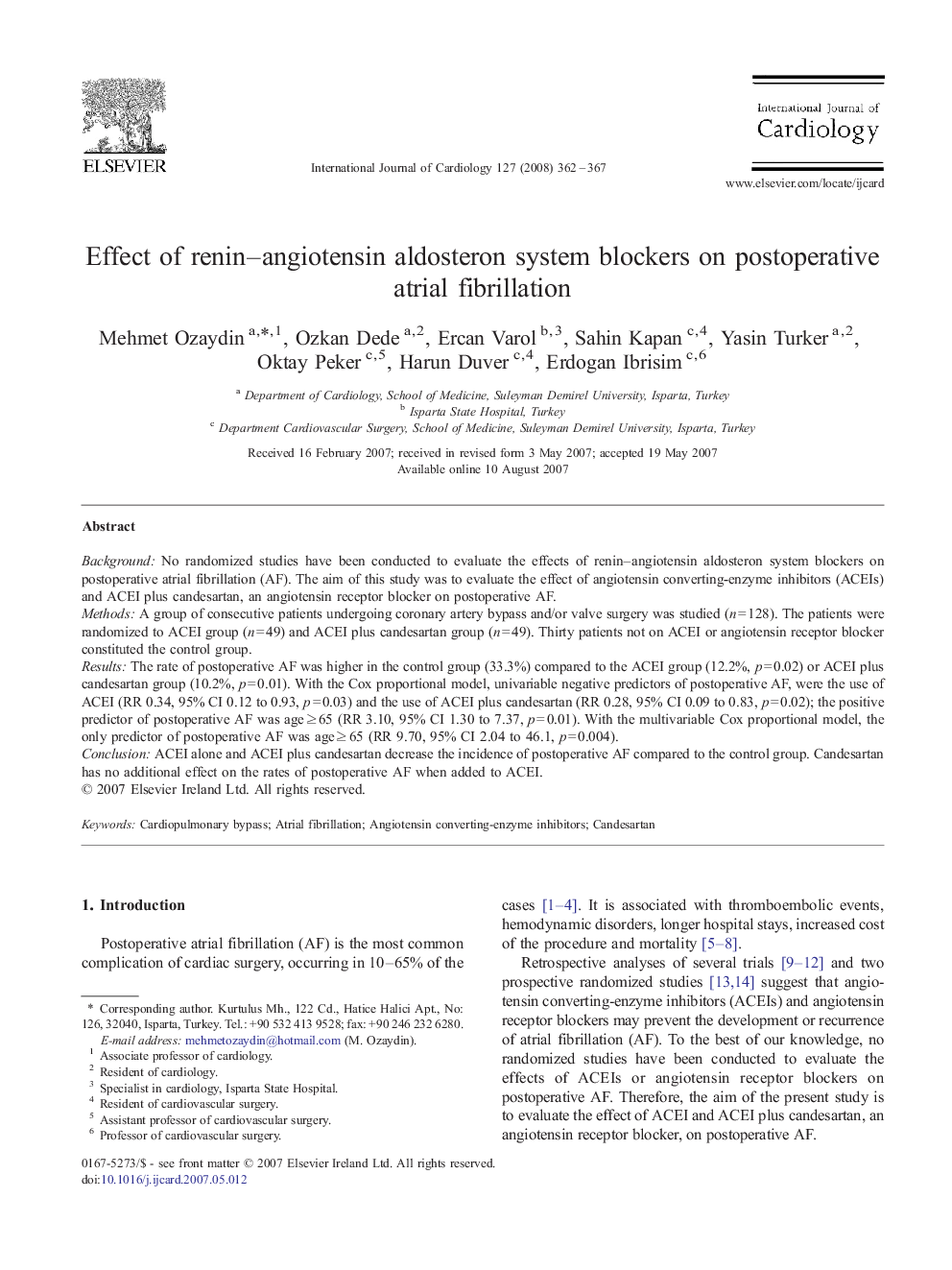| Article ID | Journal | Published Year | Pages | File Type |
|---|---|---|---|---|
| 2933564 | International Journal of Cardiology | 2008 | 6 Pages |
BackgroundNo randomized studies have been conducted to evaluate the effects of renin–angiotensin aldosteron system blockers on postoperative atrial fibrillation (AF). The aim of this study was to evaluate the effect of angiotensin converting-enzyme inhibitors (ACEIs) and ACEI plus candesartan, an angiotensin receptor blocker on postoperative AF.MethodsA group of consecutive patients undergoing coronary artery bypass and/or valve surgery was studied (n = 128). The patients were randomized to ACEI group (n = 49) and ACEI plus candesartan group (n = 49). Thirty patients not on ACEI or angiotensin receptor blocker constituted the control group.ResultsThe rate of postoperative AF was higher in the control group (33.3%) compared to the ACEI group (12.2%, p = 0.02) or ACEI plus candesartan group (10.2%, p = 0.01). With the Cox proportional model, univariable negative predictors of postoperative AF, were the use of ACEI (RR 0.34, 95% CI 0.12 to 0.93, p = 0.03) and the use of ACEI plus candesartan (RR 0.28, 95% CI 0.09 to 0.83, p = 0.02); the positive predictor of postoperative AF was age ≥ 65 (RR 3.10, 95% CI 1.30 to 7.37, p = 0.01). With the multivariable Cox proportional model, the only predictor of postoperative AF was age ≥ 65 (RR 9.70, 95% CI 2.04 to 46.1, p = 0.004).ConclusionACEI alone and ACEI plus candesartan decrease the incidence of postoperative AF compared to the control group. Candesartan has no additional effect on the rates of postoperative AF when added to ACEI.
